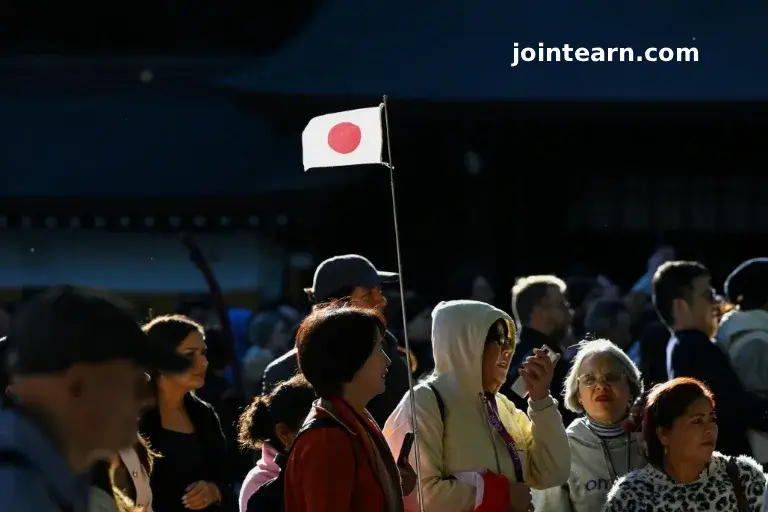
Beijing, China / Tokyo, Japan – China has officially advised its citizens to avoid traveling to Japan, marking a significant escalation in diplomatic tensions following remarks by Japanese Prime Minister Sanae Takaichi regarding Taiwan. The advisory reflects growing unease in Beijing over Tokyo’s stance on regional security and the potential for military conflict in the Asia-Pacific.
Beijing Issues Travel Advisory
On Friday, China’s embassy in Japan published a notice on WeChat, warning its citizens against visiting the country. The post cited “blatantly provocative remarks” by Japanese leaders concerning Taiwan, claiming these statements have “severely damaged the atmosphere for people-to-people exchanges.”
The advisory added that traveling to Japan now presents “significant risks to the personal safety and lives of Chinese citizens,” urging travelers to postpone trips “in the near future.”
In response, Japan’s Chief Cabinet Secretary Minoru Kihara condemned the advisory, calling it “inconsistent with the promotion of a strategic and mutually beneficial relationship” and requested that China take “appropriate measures” to ease tensions, according to Jiji Press.
Airline Refunds Highlight Economic Impact
Following the advisory, China’s largest airlines – Air China, China Southern, and China Eastern – announced full refunds for tickets to Japan purchased before the end of 2025. Passengers now have the option to cancel or change flights to Japan without penalty for travel through December 31, underscoring the potential economic ramifications for Japanese tourism.
Japan has long relied on Chinese visitors for tourism revenue, making the advisory particularly significant for the industry and local businesses that benefit from Chinese travelers.
Prime Minister Takaichi’s Taiwan Remarks
The diplomatic spat began after Prime Minister Sanae Takaichi told parliament on November 7 that an armed attack on Taiwan could warrant a Japanese military response under collective self-defense rules. She stated:
“If an emergency in Taiwan entails battleships and the use of force, then that could constitute a situation threatening the survival of Japan, any way you slice it.”
Takaichi’s remarks reference Japan’s 2015 security legislation, which allows the country to exercise collective self-defense if its survival is directly threatened. While she has since indicated she will avoid discussing specific scenarios in the future, she insisted her statement aligns with Tokyo’s long-standing strategic policy.
Escalation of Diplomatic Tensions
The row intensified last weekend when the Chinese consul general in Osaka, Xue Jian, posted a now-deleted message online containing aggressive language targeting Takaichi. Japan promptly lodged a diplomatic protest and passed a resolution calling for the envoy to be declared persona non grata.
The advisory follows a pattern of tension between Japan and China, which have a history of territorial disputes, military rivalry, and historical grievances. Takaichi, a conservative leader and former acolyte of Shinzo Abe, has long advocated for a stronger Japanese military presence in response to Beijing’s growing assertiveness in the Western Pacific.
Background on Taiwan and Regional Security
Taiwan, a self-governing island claimed by China, lies just 100 kilometers from the nearest Japanese island. Although Japan and the United States do not maintain formal diplomatic ties with Taiwan, the U.S. provides defense support, and Japan remains a strategic military ally of Washington, hosting multiple U.S. bases, including a major naval installation south of Tokyo.
China has repeatedly conducted military drills near Taiwan, reinforcing Beijing’s claim and signaling its willingness to use force if necessary. Japan’s engagement in Taiwan’s defense debate, though limited by law, reflects growing concerns over potential threats to regional security.
Strategic Implications
The advisory and ongoing diplomatic tensions illustrate the delicate balance in China-Japan relations. Both countries are major trading partners, but historical mistrust, military competition, and disagreements over Taiwan make the relationship prone to friction. Analysts suggest that Takaichi’s hawkish stance could increase economic and security pressures while testing diplomatic channels.
Conclusion
China’s travel advisory for Japanese-bound tourists highlights escalating tensions in East Asia, particularly over Taiwan’s security and Japan’s military posture. With economic, diplomatic, and strategic stakes intertwined, the next months will be crucial in determining whether dialogue or confrontation defines the China-Japan relationship under Prime Minister Takaichi.


Leave a Reply